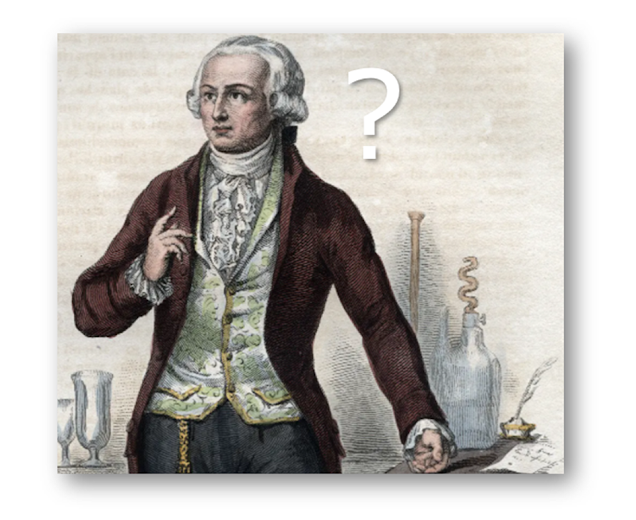Lavoisier and data governance EN
Most of us know Lavoisier (1743-1794) as a great scientist, more precisely an immense chemist.
He is credited with this sentence, the maxim “Nothing is lost, nothing is created, everything is transformed”. Good a priori, it is in fact the reformulation of a sentence of the Greek philosopher Anaxagoras: “Nothing is born or perishes, but already existing things combine, then separate again”. A bit of general culture 😊!
On the other hand, Lavoisier discovered that if matter changes state during a chemical reaction, the quantity of matter remains the same at the beginning and at the end of the experiment.
“What does this have to do with data governance? »
The relationship is (almost) simple: information systems “only” transport / transform / present data, it’s chemical…, or IT, as you choose.
The data comes through an entry point, and ends up somewhere… a bit vague, but it’s true.
So, as Lavoisier, and later the no less famous Mendeleïev, did in matters of Chemistry, in matters of information, to control a process, it will be necessary to break it down, to understand what is going on, to unravel it.
This is where it gets tricky...because for a multinational group that has been storing information for 40 years, now largely in the Cloud, processing it with countless tools, and exposing it with at least as many tools…, striving to have a perfectly governed Information System is like planning to empty the sea with a teaspoon!
Some examples of major projects that teams of data engineers have to lead. You might find yourself there. Non-exhaustive list.
- Define what each piece of information is used for, to whom,
- What are the obsolete data in the information system,
- Where to start to make the IS as simple as possible, as readable as possible,
- How to transform your IS simply and quickly (technical migration from tool to tool, Cloud migration),
And then there are all the "compliance" topics (GDPR, BCBS239, etc.), which add a little pressure.
Here we are ?
To act, there is the paper-and-pencil method with the help of many consultants. It's a safe bet that the project as soon as it is completed could be thrown away, like the paper that will have been used to produce it: an Information System is alive, the truth of yesterday is not that of today, and even less that of the day after tomorrow!
You want to become the crack of data governance, the Lavoisier of modern times who will know how to break down/control everything ? Follow me!
1/ You must automate
We believe that it is necessary to analyze a maximum of “technical stacks” in Information Systems: the storage of data, its processing, its scheduling, its exposure in the data visualization layer. As well as all the useful logs.
This a priori painful, redundant work, which requires knowing all the technologies present in the Information System, ... it will have to be delegated to third parties: probes and parsers, who will work hard, night and day, without ever deceive !
2/ You need to know all the paths taken by the data
These analyzes will be used to define the path taken by each piece of data ("data lineage") from its source, to its target, on premise, in the Cloud, and even within the data visualization tools... by processing all the breakups!
3/ You have to know what the data is for
What is important beyond the path is the goal! It's a bit the opposite of what Lao Tseu says, but an Information System is a tool, not a sentient being 😊.
This is what probes and parsers will also analyze: what the countless data present in an IS are really used for, i.e. their uses.
We will quickly realize that an IS is labyrinthine that could be massively simplified.
4/ And you have to... everything fit together!
By crossing these 2 approaches, the "data lineage" and the analysis of "uses", we arrive at an ultra granular, but possibly high level cartography of the IS, a sort of Google Map of its information system, which defines all the paths, but also all the final impacts.
Conclusion
You will certainly be taxed as an "alchemist" if for each piece of data, you are able to give its origin, future, uses, if you know how to identify breaks in the feeding chains to intervene, if you know identify the "highways of the information", but also all the "dead matter" to be removed, etc.
But in reality, alchemy is precisely what Lavoisier fought against, to make science triumph!
#datalineage #datagovernance
ellipsys@ellipsys-bi.com
www.ellipsys-bi.com




Commentaires
Enregistrer un commentaire